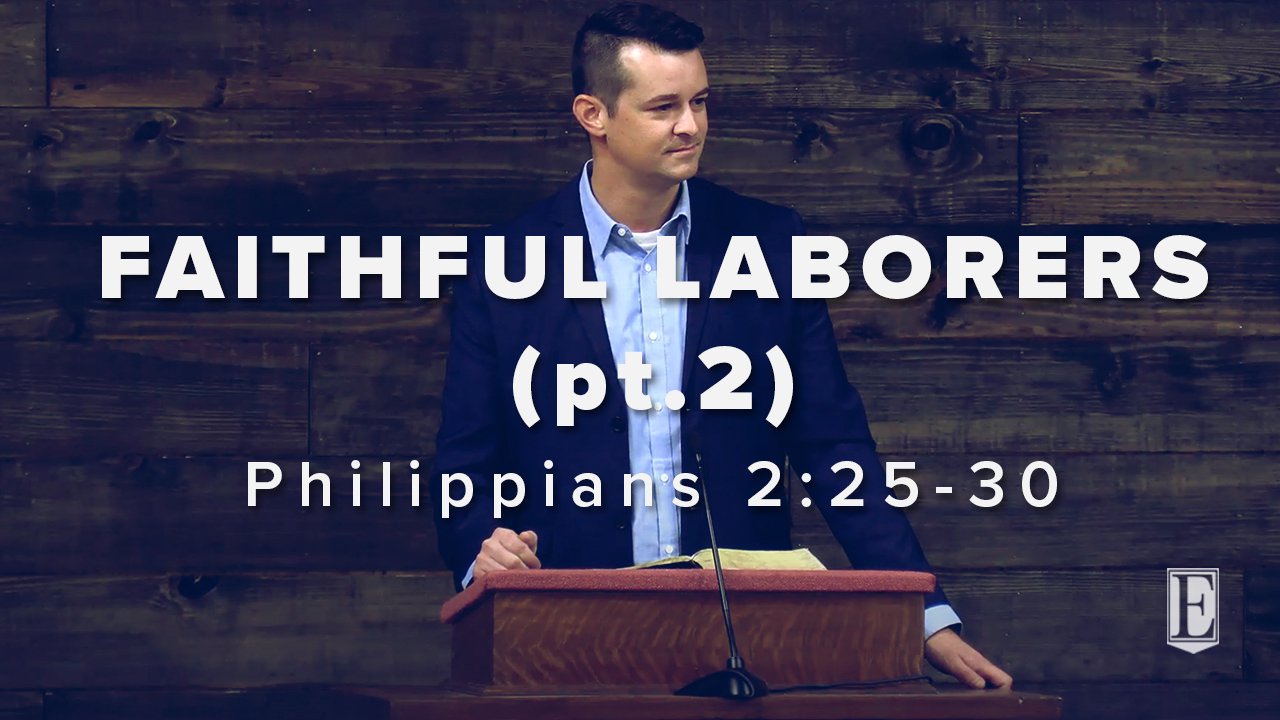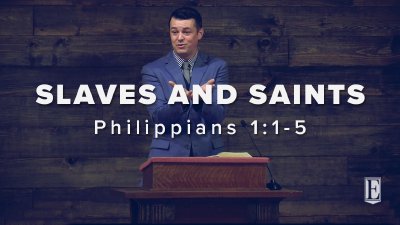OUTLINE
I. THE IDENTITY OF A FAITHFUL LABORER (v. 25)
I) A faithful laborer is a brother (v. 25a)
II) A faithful laborer is a fellow worker (v. 25b)
III) A faithful laborer is a fellow soldier (v. 25c)
IV) A faithful laborer is a messenger (v. 25d)
V) A faithful laborer is a minister (v. 25e)
II. THE HEART OF A FAITHFUL LABORER (v. 26-27, 30)
I) The heart of a faithful laborer longs for the saints (v. 26a)
II) The heart of a faithful laborer distresses over the saints (v. 26b-27)
III) The heart of a faithful laborer is willing to risk his life for the saints (v. 30)
III. HOW FAITHFUL SAINTS TREAT FAITHFUL LABORERS (v. 26, 28-29)
I) Faithful saints are concerned with the welfare of faithful laborers (v. 26)
II) Faithful saints receive faithful laborers with all joy (v. 29a)
III) Faithful saints honor faithful laborers (v. 29b)
DISCUSSION
I. Read verses 25-27. What do we learn about Epaphroditus and therefore about faithful gospel ministry?
II. According to verse 25, how did Paul view Epaphroditus? According to verse 27, how did Paul feel about Epaphroditus? What do we learn about faithful gospel ministry from verse 30?

FAITHFUL LABORERS (pt.2): Philippians 2:25-30
Philippians 2:25-30
August 23, 2020 • Brett Baggett
SLAVES AND SAINTS: Philippians 1:1-5
May 31, 2020 • Brett Baggett
OUTLINE I. The Slaves who wrote it (v. 1) II. The Saints who received it (v. 1, 3-5) III. The Source of their every need (v. 2) DISCUSSION I. Who is the author of this letter according to verse 1? What do we learn about Paul from Acts chapter 26? Who is with Paul as he writes? What do we learn about Timothy from Acts 16:1-5, Romans 16:21, 1 Corinthians 4:17, 2 Corinthians 1:19, 1 Thessalonians 3:2, 1 Timothy 1:2, and 2 Timothy 1:2? II. What title does Paul give both himself and Timothy in verse 1? What does this word mean? How should this help us understand a key component of the Christian life? III. Who is Paul writing to according to the second half of verse 1? What title does he give them and what does that word mean? How should this make us joyful? Where do these “saints” reside? What do we learn about the origins of the church at Philippi in Acts 16:6-40? IV. Which two church offices does Paul mention in verse 1? How does 1 Timothy 3:1-13 shed light on these offices? What do we learn about Church government in verse 1? V. What does Paul want the saints at Philippi to receive, according to verse 2? What do these words mean? Who is the source of this “grace…and peace”? VI. What do we learn about Paul and the Philippians in verses 3-5?
HE WILL BRING IT TO COMPLETION: Philippians 1:6-7
June 7, 2020 • Brett Baggett
OUTLINE I. The certainty of our glorification (v.6) II. The rightness of our confidence (v.7a) III. The strength to stare down affliction (v.7b) DISCUSSION I. What is Paul sure of in verse 6? Who is the “he” in verse 6? What will “he” do? What does Paul mean by “began a good work in you”? What does he mean by “will bring it to completion”? What is “the day of Jesus Christ”? How does Romans 8:28-30 help clarify? II. In verse 7, why does Paul say “It is right for me to feel this way about you”? *hint. Notice the word “because.” What does Paul mean by “I hold you in my heart”? How does 2 Corinthians 7:2-4 help clarify? What do you think Paul means by “for you are all partakers with me of grace, both in my imprisonment and in the defense and confirmation of the gospel”?
PAUL'S PRAYER: Philippians 1:8-11
June 14, 2020 • Brett Baggett
OUTLINE I. The Basics of our Sanctification (v.8-10) II. The Fruit of our Sanctification (v.11a) III. The Source of our Sanctification (v.11b) IV. The Goal of our Sanctification (v.11c) DISCUSSION I. What does Paul pray for according to verse 9? What do these words mean? Is this like or different than typical prayer requests you have witnessed? How can you better pray like the Holy Spirit guides us to in the Bible rather than how our flesh would guide us to? II. What does Paul desire to come about from answered prayer, according to verse 10? *hint: notice the words “so that.” What do these words mean in verse 10? What is “the day of Christ”? III. According to verse 11, what does Paul desire the Philippians to be filled with? What does he mean? How can Galatians 5:22-24 help clarify? Where does this “fruit of righteousness” come from? Why does it come through faith alone in Jesus Christ alone, according to the last part of verse 11?







